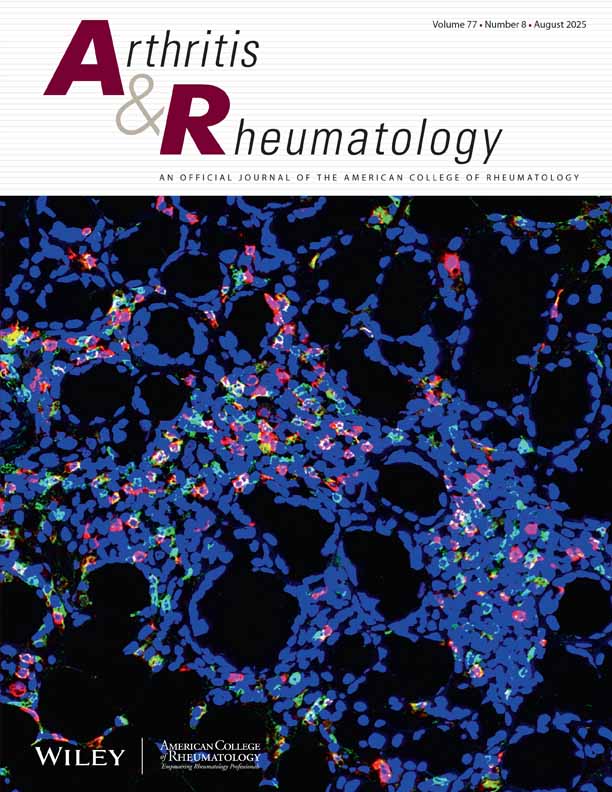Anakinra, a recombinant human interleukin-1 receptor antagonist (r-metHuIL-1ra), in patients with rheumatoid arthritis: A large, international, multicenter, placebo-controlled trial
Abstract
Objective
To evaluate the safety of anakinra (a recombinant human interleukin-1 receptor antagonist) in a large population of patients with rheumatoid arthritis (RA), typical of those seen in clinical practice.
Methods
A total of 1,414 patients were randomly assigned to treatment with 100 mg of anakinra or placebo, administered daily by subcutaneous injection. Background medications included disease-modifying antirheumatic drugs, corticosteroids, and nonsteroidal antiinflammatory drugs, alone or in combination. The primary end point was safety, which was evaluated by adverse events (including infections), discontinuation from study due to adverse events, and death.
Results
Safety was evaluated in 1,399 patients (1,116 in the anakinra group and 283 in the placebo group; 15 patients were randomized but did not receive any study drug) during the initial 6-month, double-blind, placebo-controlled phase of this long-term safety study. Baseline demographics, disease characteristics, and concomitant medications were similar between the 2 groups. The study group included patients with numerous comorbid conditions and a wide range of RA disease activity. Serious adverse events occurred at a similar rate in the anakinra group and the placebo group (7.7% and 7.8%, respectively). Serious infectious episodes were observed more frequently in the anakinra group (2.1% versus 0.4% in the placebo group). The rate of withdrawal due to adverse events was 13.4% in the anakinra group and 9.2% in the placebo group.
Conclusion
Results from this large, placebo-controlled safety study demonstrate that anakinra is safe and well tolerated in a diverse population of patients with RA, including those with comorbid conditions and those using multiple combinations of concomitant therapies. Although the frequency of serious infection was slightly higher in the anakinra group, no infection was attributed to opportunistic microorganisms or resulted in death.




